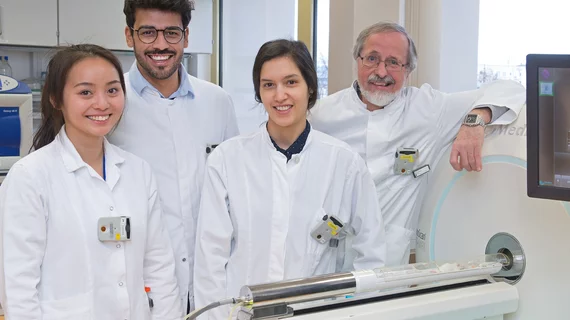Researchers develop new PET tracer to diagnose Parkinson’s
A group of German scientists have developed a new PET radiotracer that they believe will ultimately help diagnose Parkinson’s disease.
The four-member team started their research in 2016, but recently announced the successful creation of a metabolically stable radiotracer called 18F-Fluda. This material attaches itself to the adenosine brain receptors—which are important in identifying Parkinson’s—and can be detected during imaging.
Thu Hang Lai, MD, with Helmholtz-Zentrum Dresden-Rossendorf—a research lab in Dresden—and her colleagues recently beat out 21 other submissions to win the institution’s prestigious Innovation Contest for their work. The goal of the three-year challenge was to determine how nuclear medicine approaches could improve the differential diagnosis of Parkinson’s disease.
Traditionally, physicians identify the central nervous system disorder based on symptoms, such as specific motor dysfunctions. But by using their agent during PET imaging, they can identify areas of the brain with increased radioactivity, which likely indicates a higher number of adenosine receptors. Importantly, adenosine is created by the brain, and these receptors are strongly involved in regulating the central nervous system.
Lai and colleagues have performed in vitro studies in animal models and noted the substance has performed well in dosimetry and radiation protection research. They are currently working their way toward market approval for the radiotracer, and are taking steps to test the PET agent in clinical studies.
If it’s ultimately approved, the German researchers believe they will be able to better identify which patients may suffer from the negative side effects of the most commonly used Parkinson’s drug treatment.
"With a suitable radiopharmaceutical for use in humans, we hope to be able to make correct differential diagnoses and thus differentiate between Parkinson's patients who are sensitive to side effects and those who are not," the team said in a statement.

